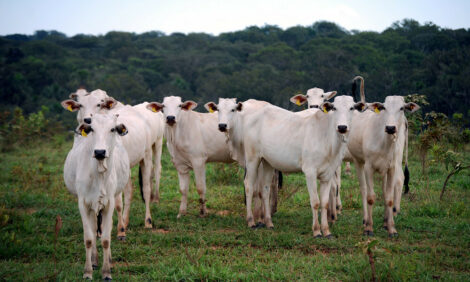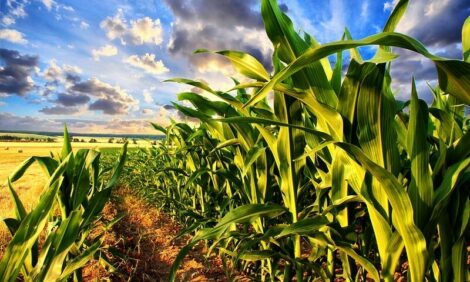



Zimbabwe to Import Beef from Namibia
ZIMBABWE - Livestock farming is now in dire straits, with Zimbabwe looking to import beef from Namibia as the country’s national herd has been severely depleted due to droughts and the foot and mouth disease.This was revealed in minutes of Namibia cabinet resolutions issued at the eighth Decision-Making Meeting held on June 6. The Zimbabwe Independent obtained the minutes of the Namibian cabinet meeting.
The Namibian cabinet took note of the agreed minutes and reports on the fourth round of diplomatic consultations and eighth session of the Namibia-Zimbabwe Joint Permanent Commission of Cooperation.
The diplomatic sessions and the eighth session of the JPC were held in Harare on 24 April, at a time Namibian president Hage Geingob was preparing to open the Zimbabwe International Trade Fair (ZITF).
The minutes noted that the Namibian deputy prime minister and the minister of International Relations and Foreign Affairs made submissions on the state visit to Zimbabwe from 24-28 April, which culminated in Geingob officially opening ZITF.
“Ministry of Agriculture, Water and Forestry — to follow-up on the formal request for the export of beef from the Northern Communal areas to Zimbabwe. The Republic of Zimbabwe to dispatch a veterinary delegation to Namibia to inspect Namibian facilities by 30 June 2017,” read the minutes.
The proposed import of beef has raised fears the country’s national herd and beef industry is under threat.
However, deputy Minister of Agriculture responsible for livestock Paddy Zhanda said there was nothing unusual in Zimbabwe importing or Namibia exporting its beef.
“I am not aware that (Zimbabwe intentions to import beef from Namibia). In any case there is nothing unusual about it. If Namibia wants to export beef to Zimbabwe that’s the decision of the country and if anyone in Zimbabwe wants to import beef from Namibia that’s their own decision. This does not mean there is a shortage of livestock in Zimbabwe. We don’t have a shortage. Moreover as government we do not import beef, it is individuals who do that,” Mr Zhanda said.
Presenting the 2017 national budget in December last year, Finance minister Patrick Chinamasa said Zimbabwe had a national herd of 5,5 million cattle although government intended to boost the herd by 300 000 beasts.
He said government had set aside US$6 million for extension services and veterinary department to enhance livestock monitoring and disease control.
Vice-President Emmerson Mnangagwa, addressing diplomats at the launch of an international appeal for food aid and drought relief mechanism, said the livestock condition was dire and the situation had been compounded by an outbreak of foot-and-mouth disease in parts of the country.
“Cumulative livestock deaths as a result of the drought are currently at 16 681 with Masvingo province being the highest at 6,566,” Mr Mnangagwa said.
Mr Mnangagwa said at least US$138 million was needed for supplementary feeding while US$53 million was required for livestock destocking.
“The livestock destocking programme targets 97 417 animals from the affected areas that need to be purchased, 80 000 animals need commercial supplement and 50 000 animals require hay supplement,” he said.
According to the Commercial Farmers’ Union of Zimbabwe Livestock Sector Overview: 2014-2015 submission to the 2015 Mid-Term Fiscal Review, the main constraint affecting the beef industry is drought, which requires mobilisation of resources to preserve core breeding herds in the worst affected areas.
“The second constraint is the high levels of Rural District Council cattle marketing levies which reduce farmer viability. At 10.5 per cent of the sale price of cattle, this amounts to nearly US$70 per animal. Another issue affecting the sector is the alarming spread of Foot and Mouth Disease (FMD) in Masvingo, Midlands and Matabeleland. Containing the disease requires approximately US$10 million to acquire vaccines from Botswana and the Department of Livestock and Veterinary Services (DLVS) cannot finance this from its budgetary allocation,” read the report.
What has made the situation in the beef industry worse is the failure by the once leading meat supplier in Africa, Cold Storage Commission to revive its operations.
TheCattleSite News Desk


